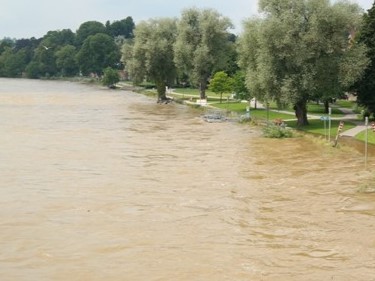
Floods in Thailand: 22 dead in 10 days
Monsoon rains plague Thailand. Devastating floods put emergency teams to the test
The heavy monsoon rains that are hitting Thailand have unleashed devastating floods, putting a strain on emergency response capabilities. Over 30,000 families have been displaced and the death toll has exceeded 22.
The consequences of the disaster
The northern and southern provinces of the country were hardest hit by the floods, with serious damage to infrastructure and crops. One of the most serious tragedies occurred on the island of Phuket, where a landslide hit a residential area, killing ten people, including a Russian tourist couple.
National emergency
The Thai government has declared a state of emergency in several provinces and has mobilized all available resources to deal with the crisis. The capital, Bangkok, is also on alert. Authorities have called on residents living along the Chao Praya River to prepare for evacuation, fearing further water level rises.
Alarming weather forecast
The weather forecast is not good: more rain is expected in the next few days, with a high risk of new floods in many regions of the country. The authorities have called on the population to pay close attention and follow the instructions of the local authorities.
A challenging operational environment
Rescue teams are involved in rescue operations and assistance to the affected population. However, rescue operations are proving particularly complex due to several factors:
- Extent of the affected area: The floods have affected a large area, involving many provinces in both the north and south of the country
- Damaged infrastructure: Roads, bridges and power lines have been severely damaged, making travel and communications difficult
- Adverse weather: Persistent rains and poor weather forecasts are prolonging the emergency and increasing risks for rescue teams
- Unstable terrain: Landslides, such as the one in Phuket, are a constant threat to the safety of workers and populations
Implications for emergency workers
The floods in Thailand represent a significant challenge for emergency workers worldwide. This emergency highlights the importance of:
- Effective coordination: close cooperation between the different agencies involved in relief operations is crucial to ensure a rapid and efficient response
- Specialized training: Emergency workers must be adequately trained to operate in difficult conditions and to deal with different types of risks
- Proper equipment: It is essential to have suitable equipment and transport for operations in flood zones
- International cooperation: International cooperation is essential to provide the necessary assistance to affected populations.


